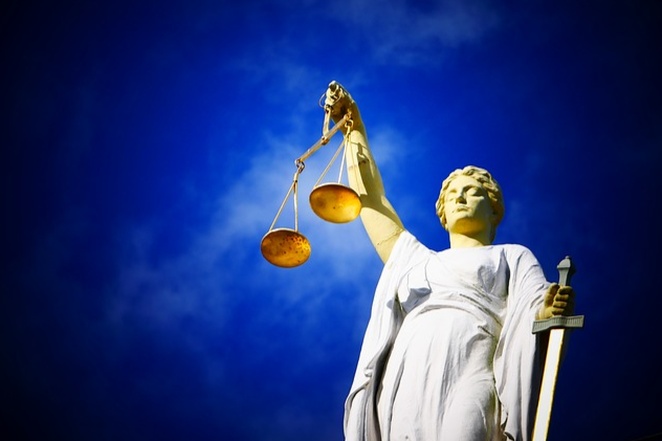THE SUPREME COURT RULES

R (on the application of Miller) v The Prime Minister, Cherry and others v Advocate General for Scotland
Boris Johnson took quite a gamble when he decided in quite exceptional circumstances to advise the Queen to prorogue Parliament for five out of a possible eight weeks in the run-up to the UK leaving the EU on the 31st October. No doubt he was advised by government lawyers that for the Supreme Court to rule his advice and the inevitable Order in Council of the Queen which would follow it to be justiciable would be unorthodox. An extension of the law into the political arena which had not been understood to be the law’s province before. BUT the Judges, given the principles at stake for:
(a) the sovereignty of Parliament and the extent to which this would be undermined as a “foundational principle of our constitution if the executive could, through the use of the prerogative, prevent Parliament from exercising its legislative authority for as long as it pleased” and
(b) the rule of law in this country
were not found wanting. The stakes could not have been higher. In one carefully worded judgement, the judges set out their unanimous ruling. This article summarises the answers to the key questions which the Court addressed.
Questions addressed
Preliminaries: First is this a ruling as to when and on what terms the United Kingdom is to leave the European Union? Categorically not. The issue is whether the Prime Minister’s advice to the Queen to prorogue Parliament was lawful? If it wasn’t what effect did that have?
Then:
Is the question of whether the Prime Minister’s advice to the Queen was lawful justiciable in a Court of law? This was split into two sub-questions:
(1) Does the prerogative power exist and if it does what is its extent?
Accepted by all the parties that this prerogative power exists and that the extent of it is justiciable. The House of Lords decision Council of Civil Service Unions v Minister for the Civil Service (1985 AC 374 is cited.
The constitution including prerogative powers has been established over the course of our history by common law, statute, conventions and practice and has developed pragmatically and remains sufficiently flexible to be capable of further development.
Nevertheless, it includes numerous principles of law enforceable by the courts in the same way as other legal principles. In giving them effect the courts have the responsibility of upholding the values and principles of our constitution and making them effective. It is their particular responsibility to determine the legal limits of the powers conferred on each branch of government and to decide whether any exercise of power has transgressed those limits. The courts cannot shirk that responsibility merely on the ground that the question raised is political in tone or context.
A fundamental principle of the sovereignty of Parliament would be undermined if the executive could, through the use of the prerogative, prevent Parliament from exercising its legislative authority for as long as it pleased. An unlimited power of prorogation would be incompatible with the legal principle of Parliamentary sovereignty.
A second fundamental principle of the sovereignty of Parliament is Parliamentary accountability The conduct of government by a Prime Minister and Cabinet collectively responsible and accountable to Parliament lies at the heart of Westminster democracy. A principle recognized in the courts.
The principle is not placed in jeopardy if Parliament stands prorogued for the customary short period. But the longer that Parliament stands prorogued, the greater the risk that responsible government may be replaced by unaccountable government: the antithesis of the democratic model.
The relevant limit upon a power to prorogue will be unlawful if the prorogation has the effect of frustrating or preventing, without reasonable justification, the ability of Parliament to carry out its constitutional functions as a legislature and the body responsible for the supervision of the executive. In such a situation, the court will intervene if the effect is sufficiently serious to justify such an exceptional course.
As to the Prime Minister’s justification for advice to the monarch to prorogue Parliament the court would have to bear in mind that the decision to so advise falls within the area of responsibility of the Prime Minister and that it may in some circumstances involve a range of considerations, including matters of political judgement. The court would have to consider any justification that might be advanced with sensitivity to the responsibilities and experience of the Prime Minister, and with a corresponding degree of caution. Nevertheless, it is the courts responsibility to determine whether the Prime Minister has remained within the legal limits of the power.
Based upon the evidence that had been submitted to it the court found (at paragraph 58 ) that the Prime Minister had given no reason, let alone a good reason (paragraph 61), for his advice to the Queen to prorogue (effectively shut down) Parliament for five weeks.
Consequently, the advice was unlawful and consequently the Order in Council which proceeded from it unlawful also.
(2) If it does exist and if it is found to have been exercised within its limits is the exercise of this power open to legal challenge on some other basis?
This depends on the nature and subject matter of the particular prerogative power being exercised (Civil Service Unions v Minister for the Civil Service).
However, this question only arises on the particular facts if characterized as one concerning the lawfulness of a prerogative power within its lawful limits rather than as one concerning the lawful limits of the power itself.
It was decided that this potential ground of challenge raised some different questions in relation to justiciability from the ground based on the effects of the prorogation of Parliament’s ability to legislate and to scrutinize governmental action. But the answer to question (1) had to be decided affirmatively first before this alternative ground of challenge needed to be considered. As he answers to (1) was that the Prime Minister’s advice was unlawful this ground of challenge did not need to be decided.
If it is, by what standard is its lawfulness to be judged?
As the prerogative power to prorogue is recognized by the common law its exercise has to be compatible with common law principles. The reasoning set out in (1) above follows.
By what standard was it lawful?
Determined that it wasn’t.
If it was not what remedy should the court grant?
Since the Prime Minister’s advice was unlawful and the Order in Council which followed from it similarly so the court held the prorogation was null and void and of no effect. Parliament had not been prorogued and unless there was some Parliamentary rule to the contrary of which the judges were unaware the Speaker of the House of Commons and the Lord Speaker could take immediate steps to enable each house to meet as soon as possible to decide upon a way forward.
The issue as to whether the Supreme Court was trespassing upon what amounted to a “proceeding in Parliament” and so outside of the remit of the Court was summarily dealt with. The Prime Minister’s advice to the Queen was not a decision of either House of Parliament. It was something imposed upon them from outside.
By accepting you will be accessing a service provided by a third-party external to https://www.scomo.com/










